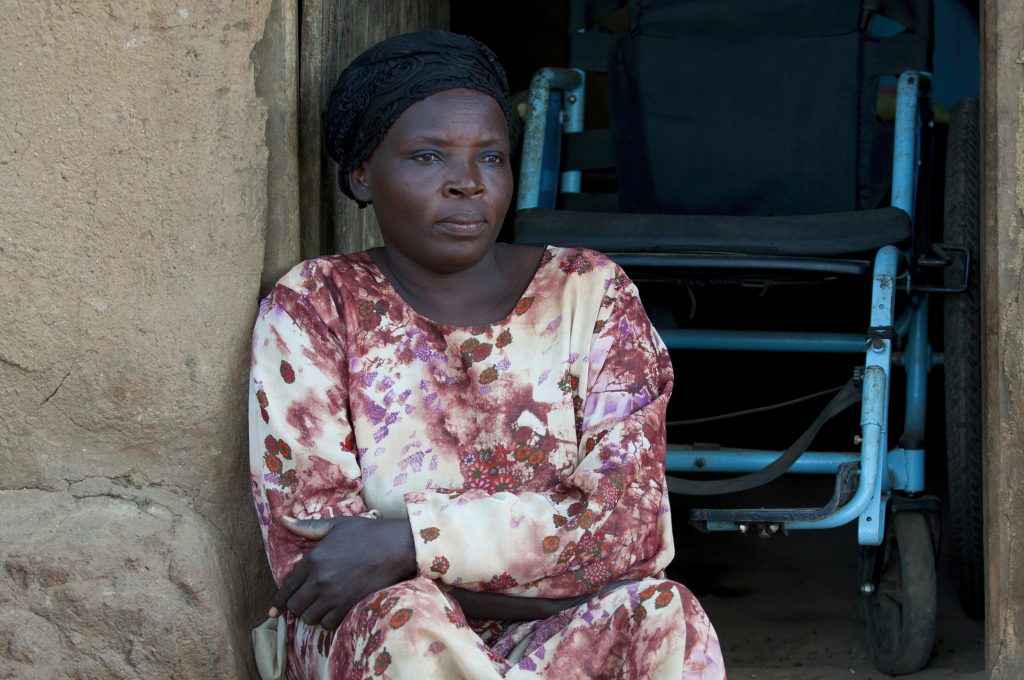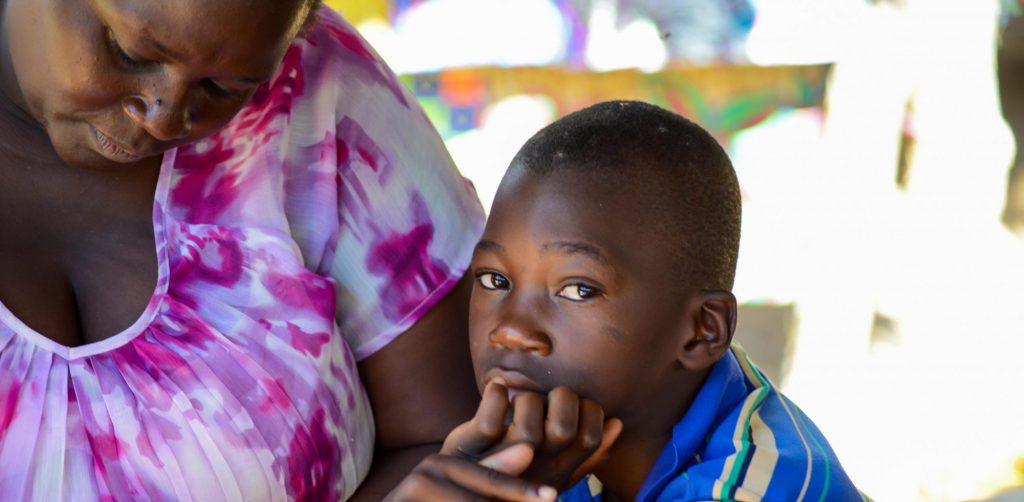Persons with disabilities are among the most affected by disasters, emergencies and conflicts. In partnership with Disabled People’s Organisations (DPOs), we work towards strengthening the protection of persons with disabilities in situations of risk and humanitarian emergencies. We do this by advocating for disability inclusive mitigation, preparedness, response, and recovery efforts, as well as by promoting inclusion efforts led by DPOs.
Today, NAD has a Disability inclusive Disaster Risk Reduction (DiDRR) programme in Uganda.
Left out of decision-making processes
Today, nearly 80 million people around the world are fleeing from their homes. Data on the number of people with disabilities among forcibly displaced people are however widely lacking. Although, knowing that more than one billion people, or 15 % of the world’s population, are persons with disabilities, it is likely that at least 12 million persons with disabilities have been forced to flee their homes.
Persons with disabilities have historically been left out of humanitarian responses, putting them at a higher risk for violence, exploitation and abuse. Refugee camps, food distribution systems and sanitation facilities are often not universally designed, increasing isolation and health risks for persons with disabilities forced to remain in their homes or shelters.
Children with disabilities in situations of risk and humanitarian emergencies face many barriers to accessing a quality education, often due to inflexible teaching methods, or inaccessible classrooms and curriculum.
Sometimes, humanitarian workers can worsen the situation with disabling attitudes. Attitudes such as believing that people without a disability are the priority, that accessible services and programmes are too expensive, or that no improvements can be done without a specialist.

Promoting a disability-inclusive humanitarian response
Article 32 of the Convention on the Rights of Persons with Disabilities (CRPD) says that international cooperation should be accessible to and inclusive of persons with disabilities.
Persons with disabilities are experts on their own life situations and should be involved in the decision-making processes affecting them in situations of risk in order to create safe and inclusive solutions.
NAD promotes disability inclusion by providing systematic capacity development of persons with disabilities and their organisations at central, district and community level, and facilitating partnerships between DPOs, government and non-governmental actors.
Empowered DPOs provide technical support and training of local government, UN and civil society, as well as conduct systematic review, monitoring and analysis of the state of disability inclusion in local efforts.

